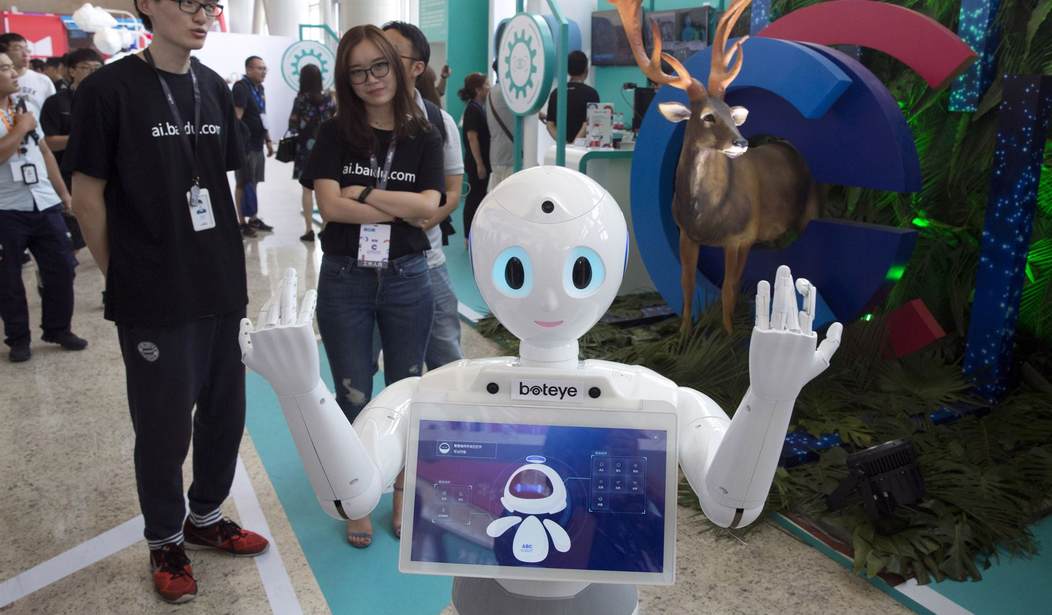In the wake of Elon Musk’s decision to pull out of his Twitter purchase because of the social media giant’s hesitation to share information on bot accounts, one has to wonder, what are they anyway? What do they do, and why are they so important that Hillary Clinton partially blamed her 2016 election loss on Russian bots?
In late April, Twitter estimated that fake accounts and spam “accounted for less than 5 percent of its daily active users in the fourth quarter of 2021.” However, with a user base of at least 330 million, that’s still an awful lot of non-human accounts (16.5 million for the math-challenged). Musk thinks the number is far higher, and that Twitter refuses to tell the truth.
Elon Musk says he’s not buying Twitter for $44 billion because of all the bots & fake accounts. Twitter says it’s suing him to compel purchase. I’d bet on a lower purchase price being negotiated before all is done here.
— Clay Travis (@ClayTravis) July 8, 2022
“Bot” obviously derives from the word “robot,” and can also be referred to as a fake account, a spam account, a spambot, or a Twitterbot. Each one might differ slightly in its name and in its function, but essentially it comes down to the same thing: they’re little robots. These robots, though, don’t take on physical form—they’re computer codes engineered to interact on social media as if they’re real people. It’s not actually a suburban hottie, sipping white wine, who’s tweeting you; it’s a Russian dude in his underwear who’s simultaneously tweeting to 5,000 other people.
The Washington Post describes the scourge:
On Twitter, bots are automated accounts that can do the same things as real human beings: send out tweets, follow other users, and like and retweet postings by others. However, spam bots use these actions to engage in deceptive, harmful and annoying activity.
For instance, a commercial bot might keep sending out tweets disguised as coming from a real person, but are actually posted by a computer. The tweets might promise free giveaways or fabulous life-changing deals, but in reality, they inevitably lead to a scam trying to separate you from your money.
Here’s something that might surprise you: bots are allowed by Twitter, but creators have to indicate when accounts are automated. “@tinycarebot” is allowed because it’s an automated Twitter reminder service; there’s nothing pernicious about it. Spam bots, however, which continually spit out unwanted information, are not permitted. Users are encouraged to report such accounts, and Twitter will shut them down.
Another use for bots is for influencers and celebrities to gain huge followings. You can sometimes spot those by noticing the “follower-to-likes” ratio: if an account has hundreds of thousands of followers, but only a few likes per tweet, you can bet many of those followers are from fake accounts and might have been paid for.
Sometimes high-profile users don’t actively recruit fake followers, they just appear. One estimate indicates that Elon Musk himself has around 23 percent fake fans, although Joe Biden handily beats him in the department—Newsweek claims that almost half of his tens of millions of devotees are bots.
In elections, bots can tweet out literally millions of fake-news spam messages, claiming everything from “Hillary is an Alien” to “Trump is actually a God from Asgard.” I personally find it hard to believe that such garbage would influence many people, but many experts disagree with me on that one.
Here are some bots in action. Definitely watch the video; it’s pretty amazing.
🧵Yesterday, an online media outlet published an article about Elon Musk @elonmusk personal life and a person close to him. These articles generated thousands of harassment, insults by some users and malicious bots. Watch the video
Here is what happened. A thread 👇🏻 pic.twitter.com/ukyGydQWxj
— Andrea Stroppa (@Andst7) July 8, 2022
Elon responded to this thread on Twitter Friday, writing, “Interesting. Who is behind the bot attack?”
Bots, spam emails, automated computerized phone calls, Nigerian inheritance scams, and the rest are the bane of our online existence. Musk, however, isn’t just concerned that they’re annoying—he’s concerned that bots and fake accounts lower the value of Twitter, and therefore the price he negotiated to buy the company is too high. They lower the value because if a large percentage of Twitter users are robots, that’s fewer real people to advertise to–and if the truth ever got out, advertisers would refuse to pay as much as they’re paying now. Musk also worries that bots and fake accounts diminish the user experience and that he will never get the growth he wants if users don’t like the way the platform works.
Hard to believe, but it looks like the tiny invisible demons may have helped kill one of the largest tech deals of the decade.













Join the conversation as a VIP Member